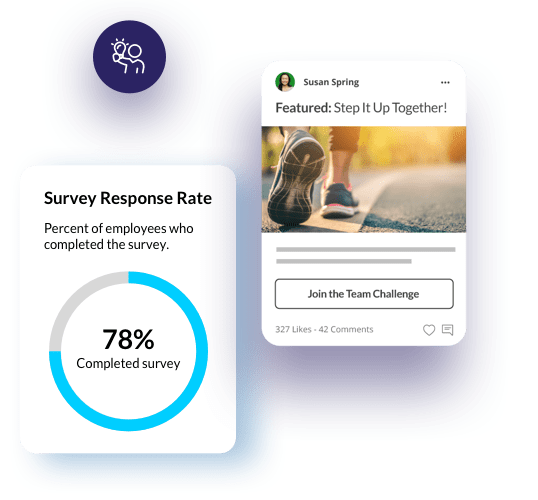Blog Post
LimeTime Session Recap: Ditch the Drama and Drive Well-being with Cy Wakeman

Explore more in Employee Well-Being

Blog Post | Employee Well-Being
6 Steps to develop an effective wellness incentives and rewards plan
To create a successful wellness incentive program, it’s crucial to understand that it takes a thoughtful approach of both intrinsic and extrinsic rewards for employees.

Blog Post | Employee Well-Being
How business leaders can help employees who struggle with loneliness and isolation
Business leaders can create a workplace that infuses well-being into the employee experience, promotes social interaction and supports mental health.

Blog Post | Product Updates
Limeade Well-Being for Microsoft Teams is officially available in the Microsoft Teams App Store
Limeade Well-Being for Microsoft Teams is now available in the Microsoft Teams app store for all Limeade Well-Being customers using Microsoft Teams.

Blog Post | Customer Stories
Limeade customer recognized as Healthy People 2030 Champion
Congratulations to the State of Washington and the HCA team on this amazing recognition, and we thank you for your partnership since 2014.
Explore more blog posts from this author

Blog Post | Employee Well-Being
6 Steps to develop an effective wellness incentives and rewards plan
To create a successful wellness incentive program, it’s crucial to understand that it takes a thoughtful approach of both intrinsic and extrinsic rewards for employees.

Blog Post | Employee Communications
4 ways HR leaders can use employee communications to support well-being and engagement
Learn how employee communications that reach the right person at the right time with the right message improve well-being and engagement.

Blog Post | Employee Well-Being
How to improve employee well-being
In today’s world of work it's essential to understand how to improve employee well-being. Get our top 5 tips you can put into action today.

Blog Post | Product Updates
LimeTime session recap: The Manager Experience: Empowering Your Essential Leaders
Learn why managers are essential for unlocking your organization's true potential in increasing employee engagement and reducing turnover.




